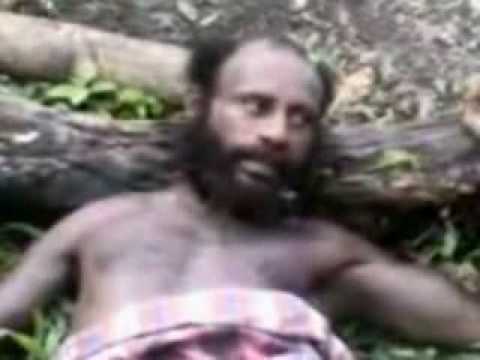
Maire Leadbeater
A leaked video clip from Indonesian controlled West Papua should be as unsettling for Indonesia as the Wikileaks 2007 video showing a helicopter strike in Baghdad was for the United States. It would serve as a good introduction to the discussion on West Papua at this week’s Pacific Island Forum.
The clip shows a Papuan man severely wounded in the stomach, surrounded by armed paramilitary police who taunt him as lies dying from the injuries they inflicted on him. Yawan Wayeni was an escaped political prisoner - in his dying moments he raised an arm to call for freedom from Indonesia, as a policeman asks “How are you going to get freedom when you are like this?” Long minutes pass before someone calls for a stretcher and a sarong to bind Yawan’s wound.
Yawan died a year ago on remote Serui Island, but it is only recently that the seven minute clip has gained international media attention – it was the focus of an August 1 story in the Los Angeles Times. Gradually the conflict in West Papua is coming out of the shadows.
Despite Indonesia’s restrictions on the entry of journalists and human rights activists, a small stream of undercover reports has emerged in the international media including the BBC, Al Jazeera and The Economist.
In June, the advisory Papuan People’s Assembly (MRP) came out with set of radical recommendations.
The MRP called for the Regional Parliament to hand back the ‘Special Autonomy’ law of 2001, for an independently mediated dialogue with Jakarta and a referendum on Papua’s future political status. To show their support for these resolutions, Papuans mobilised in unprecedented numbers – up to 20,000 - and marched twice over a 17 km route from the MRP base to the Jayapura parliament buildings.
Special Autonomy’s package of financial and legislative measures might sound good on paper but it has delivered neither wellbeing nor empowerment. The people were promised a fairer share of the abundant wealth from their mineral and timber resources, but living standards continue to fall. In the highland areas schools and health clinics don’t function because they have no staff. Due to the high level of migration from other parts of Indonesia, the indigenous people are close to becoming a minority in their own land.
Dual colonisation
The Papuan people have effectively been subjected to a dual colonisation. A border was drawn down the middle of the island of New Guinea by European colonialists at the turn of last century, with the Dutch assuming rights over the western half. By the early 1960s the Dutch had begun to cede political control to the Papuan people but Jakarta insisted that the territory should join the other former Dutch territories as part of the Republic of Indonesia.
Under pressure from the United States, the Netherlands backed out and in 1969 Indonesia ‘legitimated’ its rule by a fraudulent Act of Self-Determination called the Act of Free Choice. At a time when the population was around a million, 1,022 hand picked elders unanimously voted for Indonesia in a process manipulated by the military. The OPM or Free Papua Movement mounted a poorly armed guerrilla resistance and over the years it is estimated that the David and Goliath conflict has led to the deaths of up to 100,000 Papuans.
West Papua has had consistent support from only one of its Melanesian neighbours: Vanuatu. In July, Vanuatu’s Parliament passed a unanimous resolution which commits that country to concrete and practical measures to promote freedom for West Papua. These include raising the issue at the Pacific Islands Forum and calling on the UN General Assembly to ask the International Court of Justice to arbitrate on the legitimacy of West Papua’s incorporation into Indonesia.
The New Zealand Government has a well-practised approach called ‘quiet diplomacy’ that equates to polite and ineffective representations on human rights. Under the umbrella of ‘engagement’ New Zealand has resumed defence ties consisting mainly of bilateral officer training exchanges. New Zealand has also provided training in community policing to the West Papuan police.
We are also complicit in the resource exploitation of West Papua. The tropical hardwood, kwila, most of it logged illegally or in dodgy concessions backed by the military, finds its way here as outdoor furniture and decking. Several New Zealand institutions such as the Super Fund and the ACC Corporation have investments in West Papua’s Freeport mine, one of the most environmentally destructive in the world.
It is not too late for New Zealand to take a fresh look at the tragedy on our doorstep. The Papuans are calling for a peaceful dialogue with Jakarta and they want international mediation. New Zealand has played regional peacemaker once before for war torn Bougainville. We could do the same again either on our own or in concert with Vanuatu and other Pacific Island Forum nations.



